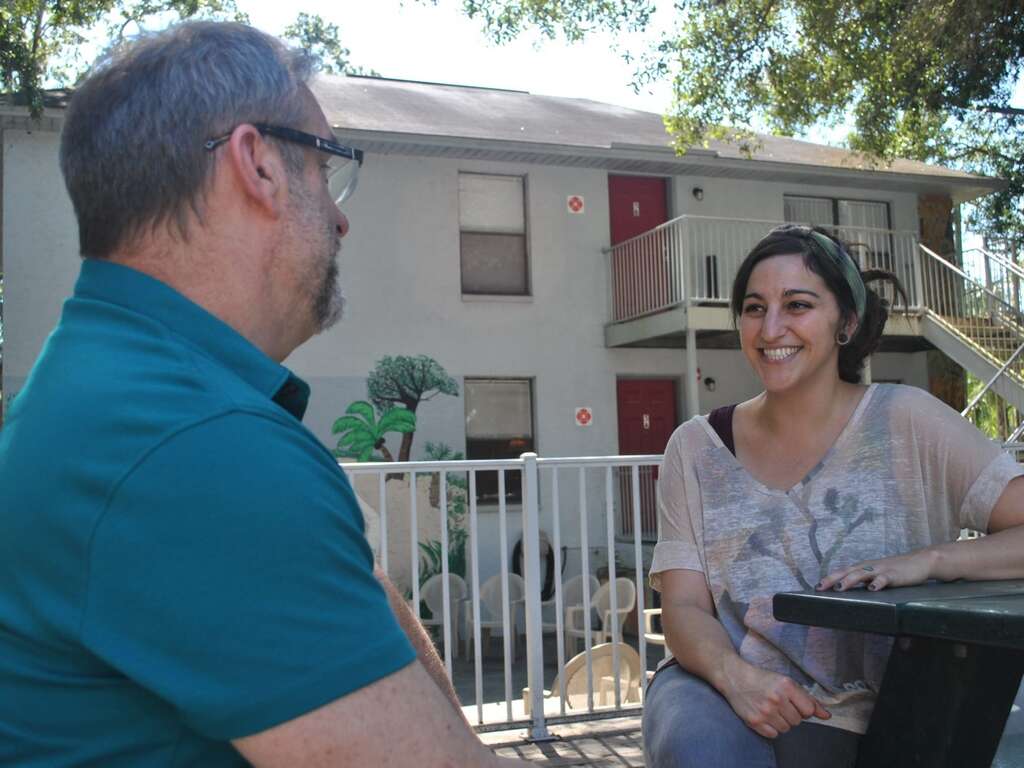Addiction Treatment at Turning Point of Tampa
At Turning Point of Tampa, we provide treatment services to those who suffer from addiction, eating disorders, and dual-diagnosis issues.
Since 1987, Turning Point of Tampa has been a family-owned facility focused on 12-Step oriented, quality care for men and women 18 years or older.
Located on one campus, our programs feature highly-credentialed staff providing real structure, teaching clients how to practice 12-Step principles, in a licensed, residential setting where group counseling is the keystone.
At Turning Point of Tampa, our team members share a singular focus – dedication to our clients.
What are the 12 Steps of Alcoholics Anonymous?
All twelve-step programs utilize a version of AA’s suggested twelve steps first published in the 1939, book of Alcoholics Anonymous. Following the 12 steps of AA will vary in approach based on how far that person is away from their last drink.
Admitting powerlessness is not easy, but the 12 steps of AA make it simple. Learning how to live sober requires basic actions – these actions become life changing. Learning to identify some of the key verbiage that come from the 12 steps of AA include helpful opportunities to stop and think before acting.
The language that comes from the 12 steps of AA becomes part of the recovering alcoholics mind set. Examples are “wrong promptly admitted”, “all these defects”, “all our affairs”, “personal inventory”, “direct amends”, “restore us to sanity”, and “searching and fearless moral inventory”. The language of the 12 steps of AA become second nature.
AA members learn about the 12 steps of AA by attending AA meetings and learning from others who have worked the steps.
The 12 Steps of AA

Alcoholics Anonymous is a suggested program of personal recovery. The twelve steps will always be the foundation of the “Big Book” which is the nick name for the book Alcoholics Anonymous.:
- We admitted we were powerless over alcohol – that our lives had become unmanageable.
- Came to believe that a Power greater than ourselves could restore us to sanity.
- Made a decision to turn our will and our lives over to the care of God as we understood Him.
- Made a searching and fearless moral inventory of ourselves.
- Admitted to God, to ourselves and to another human being the exact nature of our wrongs.
- Were entirely ready to have God remove all these defects of character.
- Humbly asked Him to remove our shortcomings.
- Made a list of all persons we had harmed, and became willing to make amends to them all.
- Made direct amends to such people wherever possible, except when to do so would injure them or others.
- Continued to take personal inventory and when we were wrong promptly admitted it.
- Sought through prayer and meditation to improve our conscious contact with God as we understood Him, praying only for knowledge of His will for us and the power to carry that out.
- Having had a spiritual awakening as the result of these steps, we tried to carry this message to alcoholics and to practice these principles in all our affairs.
Where Did the 12 Steps Come From?

The 12 steps of AA came from Bill Wilson and Dr. Bob Smith, the two men who started alcoholics anonymous. The 12 Steps of Alcoholics Anonymous in simplest form, are when a recovering alcoholic passes along the story of their own drinking problem, describes the sobriety they have found in AA, and invites a new member to join the community and informal Fellowship.
The exact nature of their inspiration for the Twelve Steps of alcoholics anonymous came from the Oxford Group who advocated that all problems rooted in selfishness and fear but could be changed through the “Four Absolutes,” and power of God.
These included a fearless moral inventory of “absolute honesty, purity, unselfishness and love,” and through public confession and sharing.
The Oxford Group also believed in the work of William James, an American psychologist and William Silkworth, MD, one of the first medical professionals to characterize alcohol use disorder as a disease. Specifically, they agreed with the philosophy of pragmatism and “The Will to Believe” doctrine (by changing the attitudes of the mind, we can change different aspects of life).
Alcoholics Anonymous
Alcoholics Anonymous world services is an international fellowship group that requires no membership fees or dues to be part of it. AA is dedicated to helping individuals who suffer from alcohol abuse or addiction work together peer to peer in sobriety through its spiritually inclined Twelve Steps program.
The relative success of the AA program is largely in part due to the fact that someone with an alcohol use disorder who no longer drinks has an exceptional support system for “reaching” and helping someone struggling with their drinking maintain sobriety.
Narcotics Anonymous (NA)
NA, was originally founded in 1953. NA is a “nonprofit fellowship or society of men and women for whom drugs had become a major problem.” NA is the second largest 12-step organization and utilizes the 12-step model that was developed for people with a variety of substance use disorders.
How are the 12 Steps Helpful in Treatment Facilities?
The twelve steps are used in many drug and alcohol treatment centers across the world. The purpose of the steps is to provide in order a clear-cut way to gain abstinence. This process is very insightful and helpful to treatment and recovery programs who address substance addictions, behavioral addictions, and compulsive behaviors.
Twelve-step facilitation is an active engagement strategy designed to increase the chance of a client or patient to become actively involved and affiliated in the 12-step recovery program and the 12-step support group that best suits them.
What are the 12 Traditions of Alcoholics Anonymous?
- Our common welfare should come first; personal recovery depends upon A.A. unity.
- For our group purpose there is but one ultimate authority — a loving God as He may express Himself in our group conscience. Our leaders are but trusted servants; they do not govern.
- The only requirement for A.A. membership is a desire to stop drinking.
- Each group should be autonomous except in matters affecting other groups or A.A. as a whole.
- Each group has but one primary purpose — to carry its message to the alcoholic who still suffers.
- An A.A. group ought never endorse, finance, or lend the A.A. name to any related facility or outside enterprise, lest problems of money, property, and prestige divert us from our primary purpose.
- Every A.A. group ought to be fully self-supporting, declining outside contributions.
- Alcoholics Anonymous should remain forever non-professional, but our service centers may employ special workers.
- A.A., as such, ought never be organized; but we may create service boards or committees directly responsible to those they serve.
- Alcoholics Anonymous has no opinion on outside issues; hence the A.A. name ought never be drawn into public controversy.
- Our public relations policy is based on attraction rather than promotion; we need always maintain personal anonymity at the level of press, radio, and films.
- Anonymity is the spiritual foundation of all our traditions, ever reminding us to place principles before personalities.
Turning Point of Tampa Incorporates 12 Step Philosophy

Turning Point of Tampa is a treatment provider that incorporates the 12-step approach to all client drug addiction treatment at Turning Point of Tampa. This powerful rehabilitative methodology has helped millions of people recover from addiction and mental health challenges. The step-by-step approach works for individuals in all stages of treatment and recovery from substance use, food addiction and eating disorders.
A Framework to Help Clients Recover
Our client’s participation in 12 step programs helps to inform much of our clinical approach at Turning Point of Tampa and functions as a framework to help clients recover. Clients will experience the steps at many different stages in their journey at Turning Point, helping them to achieve spiritual growth and sobriety.
Behavioral Health
Behavioral health is a form of treatment that helps individuals with a mental illness and/or substance use disorder recover and learn better coping strategies. Behavioral health often includes counseling, psychotherapies and activities that promote changes in our thoughts, behaviors and emotions.
Recovery from Addictions
Recovering from an addiction is possible with proper treatment and dedication to becoming sober. People who are looking to get help, can reach out to Turning Point of Tampa for more information on our treatment programs.
Step 12
The twelfth step of Alcoholics Anonymous states: “Having had a spiritual awakening as the result of these steps, we tried to carry this message to alcoholics, and to practice these principles in all of our affairs.” This critical step encouraged by all who work the steps ensures that the message of practicing these principles.


